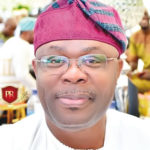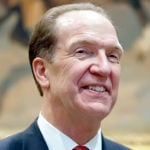In its efforts to spread the gospel of truth and verification among Nigerians, Dubawa, Nigeria’s first independent fact-checking platform, initiated by The Premium Times Centre for Investigative Journalism – will be hosting a couple of events across the country to engage Nigerians on the basics and culture of amplifying truth as part of the events lined up to mark her maiden ‘weekForTruth.’
The week-long programme starts on Monday, December 2, across Nigeria.
“Today marks the start of week-long activities to expand fact-checking and push the gospel of truth to all corners of Nigeria.”
“Throughout the week, Dubawa will be hosting events across Nigeria to engage young students, professionals, entrepreneurs, online content creators, people on-the-street and ordinary Nigerians in honest, constructive discussions and hands-on activities exploring the intersections between freedom of expression, civic engagement and fact-checking.”
ALSO READ: Foundation awards scholarship to 23-year-old orphan in Ebonyi
Referencing the ugly hoax that surfaced in the face of the Ebola outbreak in 2014 which claimed the lives of two people and scores hospitalised, the statement signed by Ms Ebele Oputa, the programme officer/Editor of Dubawa, emphasised the havoc fake news could wreck if not checked.
“Regardless of our philosophical, or most times sentimental, differences on the existence of truth, what remains is a common acceptance that false information or fake news could harm just about any of – young or old, rich or poor. In 2014, two people died and at least twenty were hospitalised, all because of a social media prank urging Nigerians to drink an excessive amount of saltwater to avoid catching the Ebola virus” she recalled
Read the full statement as released by Ms Ebele Oputa:
In Pursuit of Truth, the “Week For Truth” Begins Today In Nigeria
02 December 2019, Abuja – What is true? What is false? Does truth even exist? In a world that acknowledges the limitations of language and the circumstantial nature of events, should the accuracy of statements by politicians, businesswomen [and men] and even individuals alike, matter?
Regardless of our philosophical, or most times sentimental, differences on the existence of truth, what remains is a common acceptance that false information or fake news could harm just about anybody – young or old, rich or poor. In 2014, two people died and at least twenty were hospitalised, all because of a social media prank urging Nigerians to drink excessive amounts of saltwater to avoid catching the Ebola virus.
In 2019, incumbent candidate Muhammadu Buhari was forced to deny reports of his death and subsequent replacement by a clone, a rumour that may have cost him a good number of votes. Although an obviously ridiculous claim, the necessity of a public denial shows how easily fake news can spread.
The knowledge of this modern-day information dynamics is not lost on the government. Very recently, the 2019 version of an anti-social media bill was read for the second time on the floor of the Nigerian Senate, paving the way for its passage into law. Amongst other provisions, the bill will give the government and its agents the power to decide what constitutes a false statement and shut down the internet to silence dissenting voices.
“We can talk for hours about the role of tech companies, the government, the media and every other stakeholder in the information industry in fighting misinformation, but an often ignored but essential ingredient is education. By giving people the knowledge and ability to spot potential fake news, you are creating an army of voters who are critical of news they consume from covert and overt sources; people with greater access to information that causes them to challenge leadership; and that’s the kind of people we need in Africa!”, says Ms Ebele Oputa, the Programme Officer/Editor of Dubawa, a project that started in 2018 to help stop the dissemination of misinformation in Nigeria.
Today marks the start of week-long activities to expand fact-checking and push the gospel of truth to all corners of Nigeria, to bring Nigerians together and offer them information as tools to hold the powerful in the society and by extension themselves accountable. Throughout the week, DUBAWA will be hosting a couple of events across Nigeria to engage young students, professionals, entrepreneurs, online content creators, people on-the-street and ordinary Nigerians in honest, constructive discussions and hands-on activities exploring the intersections between freedom of expression, civic engagement and fact-checking.
Follow activities across Nigeria using the hashtags #WeekForTruth, #DubawaChecks, #Stand4Truth. Also, visit Dubawa.org for resources.
So does truth really matter? Whether we want to admit it or not, truth affects our lives every day. We owe it to ourselves and our society to get better at recognising them, using them responsibly and, if necessary, resisting them. Because without valuing the importance of truth, we surrender our reality to others.
About Dubawa:
Dubawa is Nigeria’s first indigenous independent verification and fact-checking project, initiated by the Premium Times Centre for Investigative Journalism (PTCIJ), supported by the most influential newsrooms and civic organisations in the country to help amplify the culture of truth in public discourse, public policy, and journalistic practice and guided by the five principles of the International Fact-checking Network (IFCN).
Dubawa’s mission statement is to institute a culture of truth and verification in public discourse and journalism through strategic partnerships between the media, government, civil society organisations, technology giants and the public. Through its website, dubawa.org regularly publishes fact-checks and articles on politics, health and the economy, as well as in-depth analysis on how these issues affect you






